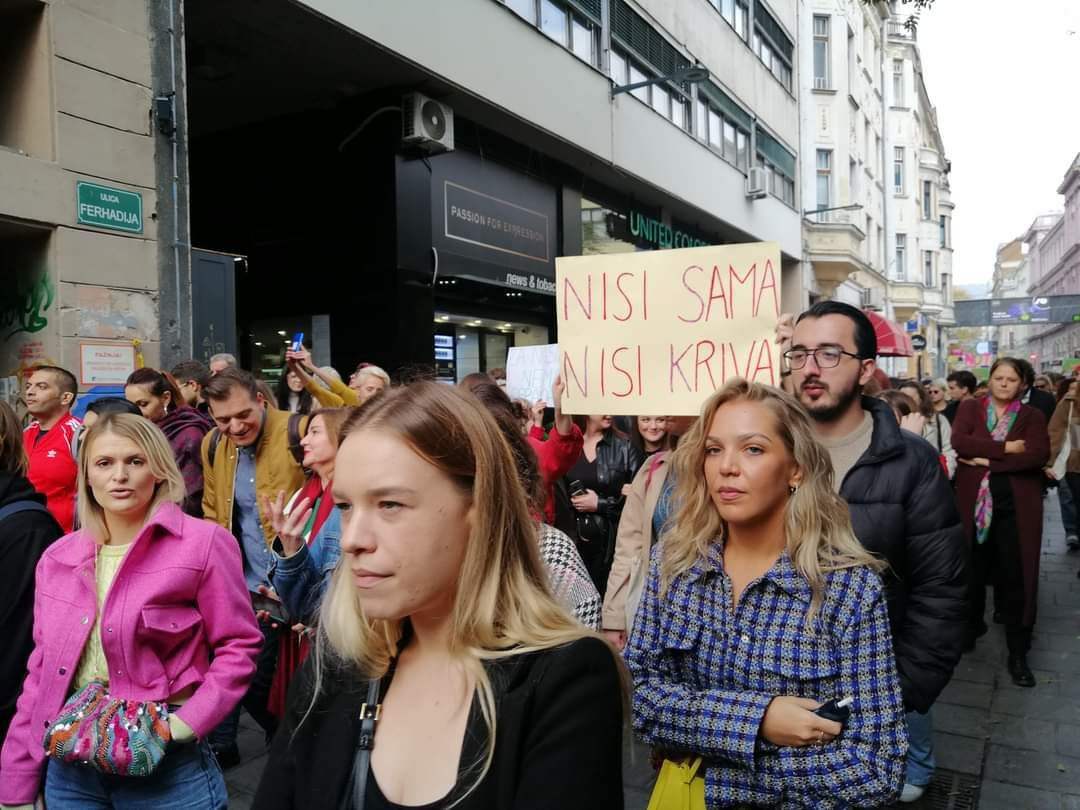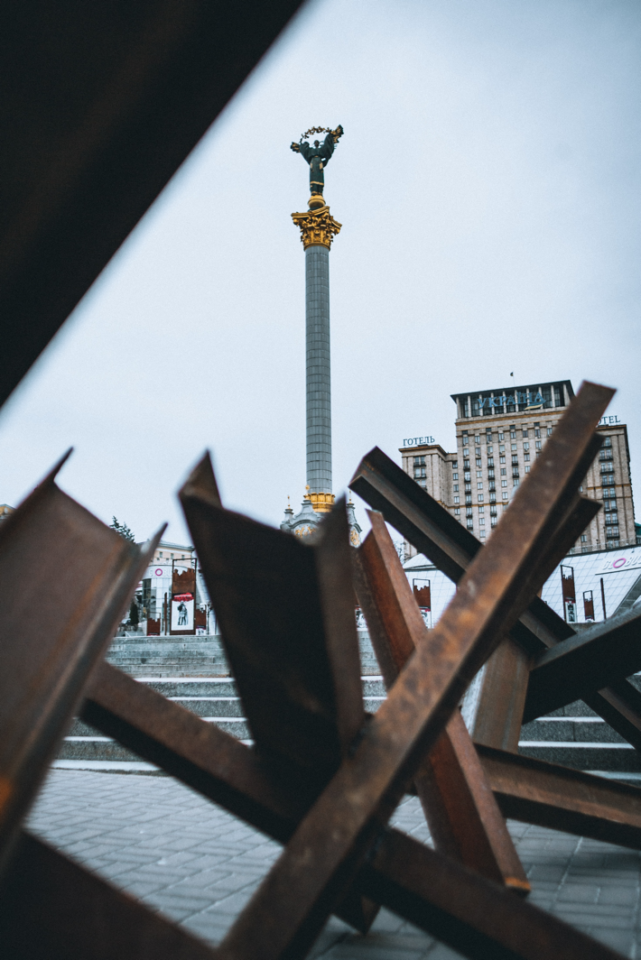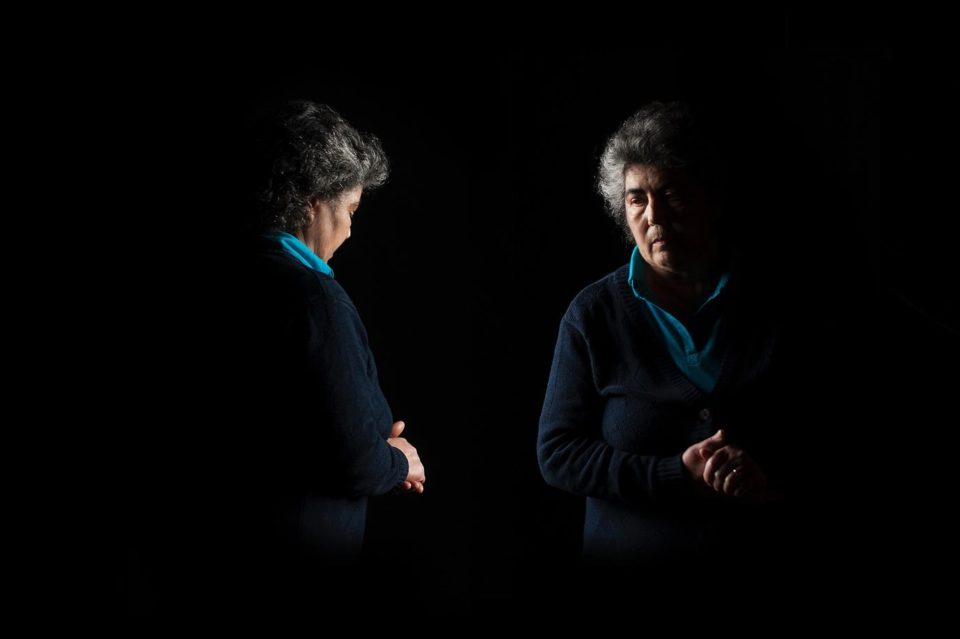
Conflict-related sexual violence (CRSV) has lasting consequences not only for survivors but also their families and communities. According to reports published by NGOs in BiH, memorialization and public acknowledgement of these crimes are an important part of securing justice for victims, facilitating their healing and reintegration into society.
The third and final part of this series will look at CRSV in society, focusing on measures in place in BiH to deal with its consequences and what Ukraine can learn from the societal reality in this country.
There is no straightforward path to repairing a post-conflict society. As Mattias Steifel (1999) argued, “the challenge of rebuilding societies after war is much more complex and difficult than the task of putting an end to fighting.”
Legal justice for CRSV survivors is only one part of the healing process; the process also extends to the rights to rehabilitation, reparation, and the guarantee of non-repetition (Zecevic, 2022). In addition, memorialization and public acknowledgement of the crimes committed against them are major contributions to the process of achieving justice, and satisfaction and aiding their integration into (TRIAL International, Vive Žene, GSF, 2022). It is also important to recognize that CRSV does not just affect survivors and their families, but also has long-lasting consequences for whole communities and society (TRIAL, 2021).

The United Kingdom’s Preventing Sexual Violence in Conflict Initiative PSVI has been a central part of how BiH’s society has navigated the post-conflict landscape.
As the only country to have a department dedicated to CRSV and its prevention, it has funded the legal advocacy body TRIAL, which successfully advocated for the landmark ruling by the UN Committee against Torture that sets out states’ obligations to survivors of sexual violence and gives organizations a baseline to work from (HMG, 2020).
The large investment as well as the fact that it was spearheaded by Angelina Jolie drew the attention of both citizens and the government, and as such, as Jasna Zecevic, the President of To Vive Žene and someone who was involved with the Initiative argues, the PSVI was “effective in the sense that it was good for the visibility of survivors.”
Even though it didn’t directly lead to the creation of any new laws, the Independent Commission for Aid Impact (ICAI) noted that the best examples of lasting impact have come from BiH. The international protocol provided the necessary structure to enable the use of information collected by non-governmental organizations and service providers, the processing of individual cases and the provision of legal protection through judicial or quasi-judicial mechanisms, the submission of documentation collected in accordance with the standards of international law enforcement, investigative, and judicial bodies, secure storage of evidence for later use in accountability and transitional justice processes and use of evidence to assist survivors in making out-of-court claims. (ICAI, 2020).
Stigmatization, condemnation and humiliation
It is undeniable that CRSV has lasting consequences for those directly affected by it. A report published by the women’s organization Medica Zenica and the German NGO Medica Mondiale examined the current outlook for CRSV survivors in BiH, and the results were telling of the cultural barriers that CRSV survivors face today: more than 70% of the participants reported that rape still majorly influences their lives, and 56.5% of the women said that their husbands or partners knew about the rape experience (Medica Mondiale and Medica Zenica, 2014).
Recent incidences of femicide and the failure of the legal system to prosecute crimes of domestic violence demonstrate that patriarchy continues to shape society in BiH. In 2018, 25% of women still tended to agree that domestic violence was a private matter and should be handled within the family (OSCE, 2018). In a society that views women’s rights as secondary issues, female victims of violence are shrouded by stigmatization, judgement, and humiliation. The shaming and disempowerment of these women have been and continue to be damaging to peacebuilding efforts in the country.
This tendency to marginalize the experiences of those who have suffered is especially apparent with children born of rape. There is no state-level law granting children born of rape and thus, these children continue to face stigmatization and administrative obstacles. Recent efforts have aimed to combat this. Children of wartime rape were first legally recognized by the Brčko District in July, and this legislation was one of the first cases of legal recognition globally. The draft law regulating the rights of children who were born after rape in the territory of the Federation of BiH was also adopted and passed a public debate, and its adoption is expected this year in the form of a draft law on the protection of civilian victims of war in the Federation of BiH.
The “Name One Parent” initiative launched in 2019 by the Association of Forgotten Children of the War has also been fighting for more recognition of these children. In the Federation of BiH, due to the Initiative’s advocacy, 15 municipalities have changed the discriminatory requirement to name both parents on documents, meaning that now, the name of only one parent is sufficient (TRIAL International, Vive Žene, GSF, 2022).
Male survivors are also overlooked in many of the discussions of CRSV. Elissa Helms argued that the idea of vulnerable male bodies “does not sit comfortably” within Bosnian society, which is why there are no mechanisms in place to support male victims (Helms, 2003). Currently, those who survived CRSV as members of the armed forces, whether in combat or non-combat positions, are not eligible for war victim status under any of the legal frameworks of the BiH administrative units (TRIAL International, Vive Žene, GSF, 2022). Moreover, because the status of prisoner of war is not regulated by laws on civilian war victims, men who experienced CRSV as prisoners of war are left without any mechanism for recognition of their status as victims (TRIAL International, Vive Žene, GSF, 2022).
Reports from Ukraine indicate that men are also being subjected to CRSV in this conflict. Thus, going forward, it is critical to ensure that these victims are acknowledged and given the same rights and access to justice as their female counterparts.
The Limits of Compensation
In BiH, CRSV survivors are economically vulnerable, with many living on or below the poverty line (UN Women, 2015). Financial struggles are one of the main obstacles to achieving effective rehabilitation for survivors and their families (TRIAL International, Vive Žene, GSF, 2022).
A 2022 study ‘We Raise Our Voices’ published by TRIAL International, Vive Žene, and the Global Survivors Fund outlined that survivors have not been compensated for the harm they have suffered and that some survivors have felt further victimized by judicial institutions in their attempts to seek compensation.
The BiH legal framework for compensation is processed across four criminal procedure codes – one at the state level and three at the entity level. A landmark 2015 case was the first time that compensation was awarded to a victim and a turning point for BiH regarding survivor compensation.
However, there are several issues with the current compensation process which has limited its effectiveness. At the root of these issues is the lack of a consistent mechanism across courts, meaning that the application of the law is inconsistent across the country. Courts at lower levels still regard compensation claims as prolonging factors in trials, so it is unsurprising that in BiH, compensation has been awarded by lower courts only twice – once in Doboj and once in Novi Travnik (TRIAL, 2022).
Furthermore, there is no mechanism by which the state or entity courts can enforce the payment of compensation to the victim. Arguably, this is the main flaw in BiH’s current compensation process. With this inability to enforce compensation payment, especially at the entity level, survivors are left without a crucial element of the healing process.
In the healing process, humanitarian organizations have worked to encourage constructive dialogue between survivors and their relatives. Research has shown that cultures of silence result in transgenerational effects of survivors’ trauma on their children and families (Medica Mondiale and Medica Zenica, 2014). For example, Fondacija CURE’s ‘Speak Up Against Violence’ project focused on empowering young women through education so that they could then transfer knowledge among their peers regarding the prevention of gender-based violence and violence in youth relationships.
Vive Žene in Tuzla similarly works with various groups in different communities to help wider societal healing. Their President, Jasna Zecevic, advised that in any other warzone, including Ukraine, “family work and this discussion in the family should start from the beginning” (Zecevic, 2022). Fondacija CURE suggested that Ukraine should “make available and co-create holistic and meaningful support to victims and survivors, communities and children born as a result of conflict-related sexual violence, including by tackling stigma” (CURE, 2022).
Short-Term Sources of Funding
Despite the crucial work carried out by these women’s NGOs, their reliance on donor support calls into question their long-term sustainability. Professor of Transitional Justice and International Criminal Law at University of Birmingham, Janine Natalya Clark agrees, arguing that a combination of factors, including donor priorities and political interests, have contributed to stalled progress and the emergence of a multi-level victimhood structure that risks further stigmatizing CRSV survivors (Clark, 2019). This is a concern shared by UN Women, which predicted that organizations working with CRSV survivors “will not be able to ensure their financial sustainability” due to changing donor interests (UN Women, 2015).

Unfortunately, a study by the ICAI in 2020 revealed that globally, the effectiveness of the UK’s PSVI has declined and “activities aimed at addressing conflict-related sexual violence are often not prioritised at all.” This goes to show that even initiatives with sincere intentions like the PSVI fall victim to these dynamics. The study attributed the cause to the lack of infrastructure to translate pledges into practical action and insufficient mechanisms to monitor and review progress.
Although the UK has committed £50 million in funding since 2012, the effectiveness of such funding has been limited by the short one-year FCO funding cycles and the departure of the pioneer of the Initiative, Lord William Hague (ICAI, 2020). In response to this criticism, the UK Government accepted that there were further improvements that could be made to the PSVI learning processes. They adopted a 3-year strategy but insisted that the cross-departmental approach allowed the Initiative to leverage maximum effects from respective areas of expertise (HMG, 2020). The ICAI’s 2022 follow-up report is more optimistic and shows that the UK Government has taken advice and is displaying a more coherent and proactive approach to the PSVI.
Looking forward, the new 3-year PSVI Strategy will have a country-specific focus on BiH (ICAI, 2022). Out of the £12.5 million of new funding, £1.8 million will go towards priority countries. This is a far cry from the £15 million allocated to the project in 2014-15 (ICAI, 2020). The strategy states the intention to develop a “strong monitoring, evaluation and learning framework for the PSVI” and includes a significant monetary allocation to a new ACT for survivors’ initiative that aims to increase the number of successful prosecutions (ICAI, 2022 and UKGOV, 2022). This new strategy was detailed as part of the UK Foreign Secretary’s opening speech at the PSVI Conference in London, a follow-up conference to the spearhead conference in 2014.
The 2022 conference provided an important platform for the discussion of current issues surrounding the prevalence of CRSV. The social media hashtag for the conference #forsurvivorswithsurvivors highlighted the positive steps the international community has taken towards ensuring a survivor-led approach.
However, the fact that only with this conference did the UK allocate new funds to the Initiative is indicative of the limitations of international support to CRSV globally. Apart from this specific occasion, support for the Initiative has been in steady decline.
Since the outbreak of war in Bosnia and Herzegovina and the first reports of CRSV, there have been considerable improvements in not only the treatment of CRSV survivors but in the mechanisms available to pursue justice and accountability. Further improvement is needed, however, which will incorporate a gendered perspective on human rights in all spheres of activity (CURE, 2022). In BiH, progress is hindered by the complexity of the power-sharing system; without state-wide legislation and initiatives, CRSV survivors will continue to be marginalized in society. Nevertheless, its support for civil society initiatives working for societal changes in the region remains crucial.
In juxtaposing the BiH and Ukrainian examples, one main difference stands out: the willingness of the West to support Ukrainians from the start of Russia’s invasion in February. The world is watching Ukraine, and so, with the experience of the last 30 years, measures to combat CRSV should ensure that survivors receive the support and justice they deserve. Although 54 countries have endorsed a political declaration headed by the PSVI to end CRSV with a focus on Ukraine, if the previous funding cycles and declines in activity are anything to go by, it remains to be seen if the international community will act on their promises this time.






